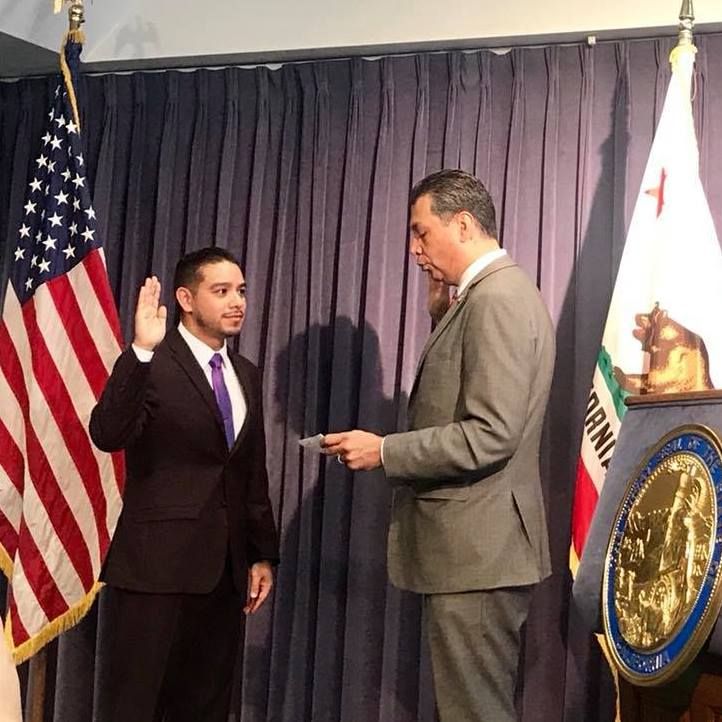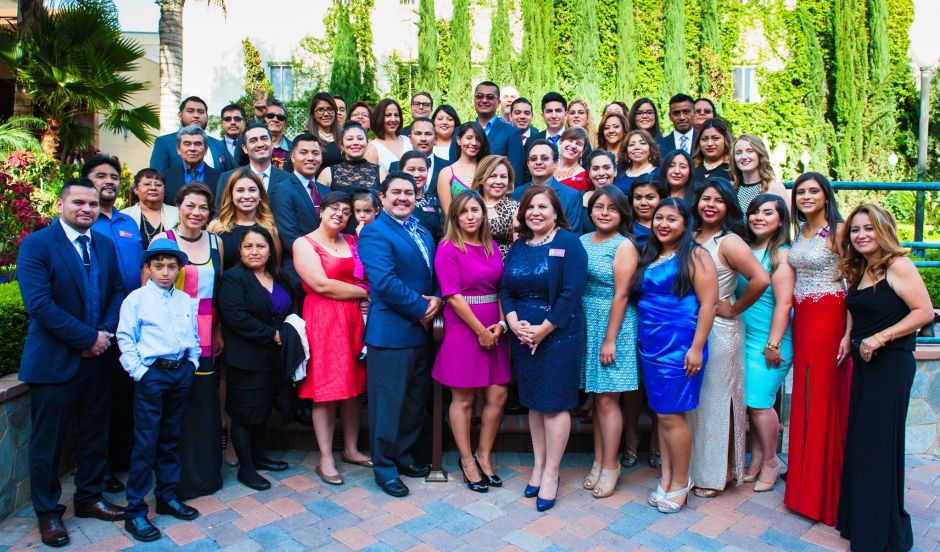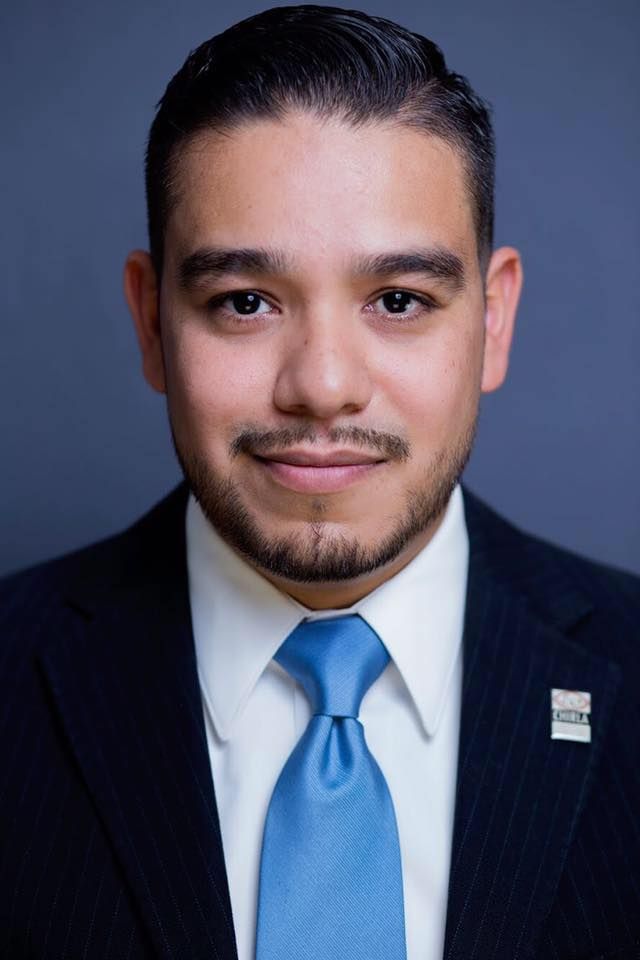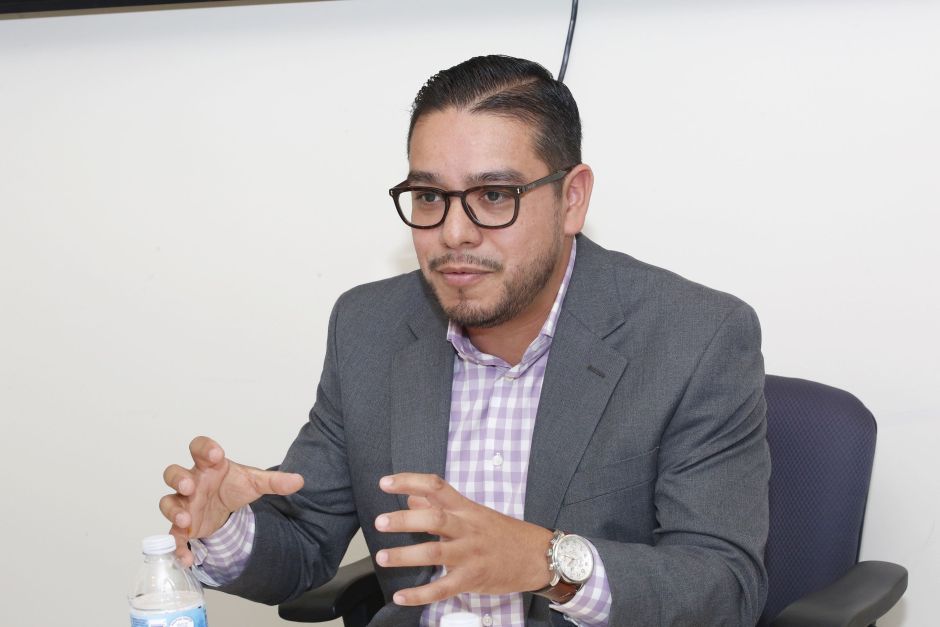Luis Alberto Pérez spent more than 30 years his life as an undocumented, in the fight for immigrants, until this summer when already as a lawyer and director of Legal Services of the Coalition for the Rights of Immigrants (CHIRLA), he became a resident of The USA. But to become a lawyer and work for immigrants, Luis Alberto had to overcome many challenges.
"My mom and my three brothers crossed – the border – when I was eight years old. The next week, I turned nine, ”he says.
Luis Alberto and his family came from Guadalajara, Jalisco to meet his father who had been in the country for three years.
“We came to live in Pacoima, but I grew up between San Fernando and North Hills in the San Fernando Valley,” he says.
His father brought forward the family working in construction, and his mother taking care of children.

“There was a brief moment when they convinced my parents to see a notary to request political asylum. While they gave us a work permit. It was all part of a fraud. In 2007 they gave us a deportation order, ” He says.
The exit order arrived just when Luis Alberto was presented with the opportunity to go to university and his work permit expired. "Am I leaving or staying?" He says he wondered.
He decided to stay because he felt protected by being a university student.
Luis Alberto began to get involved in student activities. “I was part of the Student Society. When I left Mission College, I already knew how to organize as undocumented and make things work, ”he observes.
At the University of California, Los Angeles (UCLA), he was one of the co-founders of the IDEAS group – the official voice on the issues of undocumented students on the UCLA campus – and those who wrote and shared the rules.
“That gave rise to other schools having their own IDEAS groups, knowing how to organize and stop doing things in secret,” he says.

In those years, recalls Luis Alberto, much of what they did as undocumented students was not as open as now. "We were cautious," he says.
In 2005, he graduated from Political Science at UCLA. By then he was very connected with politicians because of his volunteer work, but also with his teachers. “That made me feel protected. If something happened to me, I already had someone to support me, ”he says.
He paid for his career with scholarships and working in construction. “From Friday to Sunday, I was going to do my jobs, lay floors and paint. I had to lose a semester because I didn't have the money for the tuition fees. At that time I did not go to class, I spent working and applying for scholarships, ”he says.
In 2006, he was accepted to study law at UCLA, but he didn't attend until a year later since he needed to raise funds to pay for the school.
"At that time there was no California Dream – the California law that allows undocumented students to receive financial aid," he says.
That year before entering law school, he worked for a pool company. “It is very heavy to work with cement. If you make a mistake, your hands are burned. I was sad to be doing that. I was already a graduate of UCLA, ”he recalls.

Nevertheless, Every time he got discouraged, he remembered that working with cement had a purpose, saving for the Law School.
“In 2007, I was the first undocumented student to be accepted to the UCLA law school; and the first under the AB540 law created by the late legislator Marco Antonio Firebaugh, – which allows undocumented students to pay the same tuition fees as permanent residents – “.
In 2010 he graduated, and in 2012 he passed the Bar exam, but he could not have access to a license because in those years, the undocumented were not approved to practice.
Things changed when Governor Jerry Brown signed a law on October 5, 2013, which took effect on January 1, 2014. On January 2, 2014, the court instructed the State Bar, not to exclude anyone from admission because of their undocumented status.
“Together with Iliana Pérez – an immigrant with DACA with a doctorate in education – we look for ways to practice as contractors,” he recalls.
In 2012, he arrived in CHIRLA to start the DACA and Citizenship clinic. “Then we start doing family petitions, the U visa, VAWA and we created the Deportation Unit to help detainees", He says.

When he obtained his work permit last year, he became a CHIRLA employee and director of the Legal Services Unit responsible for 45 people.
“We have offices in Pacoima, South Los Angeles, El Sereno, downtown Los Angeles, South Orange County in San Juan Capistrano, Porterville in the Central Valley and in Sacramento,” he explains.
In addition, the 38-year-old lawyer is happy because CHIRLA recently signed a new contract with the state of California to bring legal services to community colleges.
Luis Alberto talks about how he became a resident thanks to a family petition, but first he had to get his case reopened in court to eliminate the deportation order. “I was represented by the Project Counsel for the Rights of Immigrants Public Counsel, Judy London, who after an 11-year fight won the case. My achievements helped me, not having a criminal record and being considered an exemplary immigrant, ”he says.
His case was approved in 2018, but it was this summer that he finally received the resident card.
“When the green card arrived, a welcome to the United States was included. It took many years to welcome me. That is something we want to change. Immigrants should receive a welcome since they enter the country, ”he says.

The most satisfying thing for this lawyer specialized in human rights, is that already with his resident card, he was able to travel to Mexico and visit his paternal grandfather in September whom he had not seen for 29 years. “He died two weeks after I went to see him. If I had not had the green card, I could not say goodbye to my grandfather. I was his oldest grandson, ”he says.
One of his goals is to change the discourse that without DACA – Deferred Action for Childhood Arrivals – nothing can be done.
“I have achieved many dreams without DACA and financial help. California is a state in which we have many supports, the AB 540 law, the California Dream Act, professional licenses to work as undocumented, ”says this lawyer who is considered a leader for Deferred Action for Deferred Action.
But ultimately, he says "we have to keep fighting."
Click on the star of Google News and follow us








